The GTA Trilogy's Vice City underlines the importance of autonomy in sandbox games
A modern day trip to faux-Miami proves Grand Theft Auto is best when letting players loose
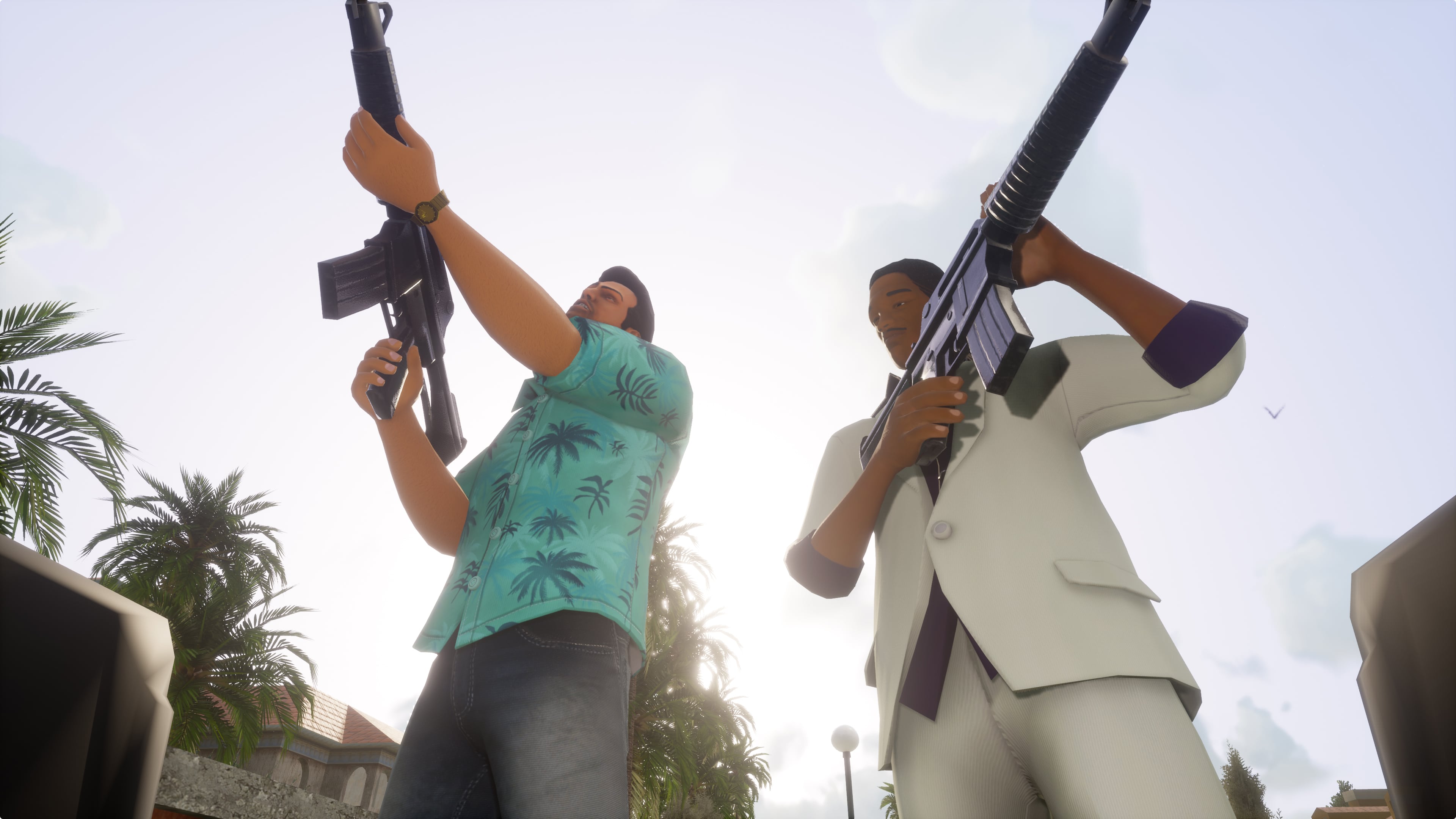
On November 9, 2002, I promised my mate Gav he could borrow a pair of smart shoes for his aunt's birthday. I told him I'd meet him "halfway", at the bridge that divides Cathcart and Merrylee in Glasgow at 7pm, which, to be fair to him, was much nearer my house than his. Six hours earlier, I'd skipped school (don't do this) and had swapped a whopping four games against Grand Theft Auto: Vice City, released in the UK that day, and still owed the man behind the counter a tenner (don't do this either). Six hours later, and I was totally obsessed with Tommy Vercetti, Lance Vance, and zipping around the sun-kissed, neon-soaked, drug-addled pseudo-Miami streets of Vice aboard a pastel pink scooter listening to Billie Jean. And poor Gav was soaked in the rain, rattling my door and looking to borrow that pair of shoes. Sorry, mate.
Nineteen years on, and that first instance of driving a moped to the tune of Michael Jackson's 1982 hit is considered pivotal in the GTA series. But after playing Vice City as it appears in the GTA Trilogy, sans Jackson as a result of expired music licensing, I think Vice's crowning moment occurs much later in Tommy's bid for city domination.
Cruise control
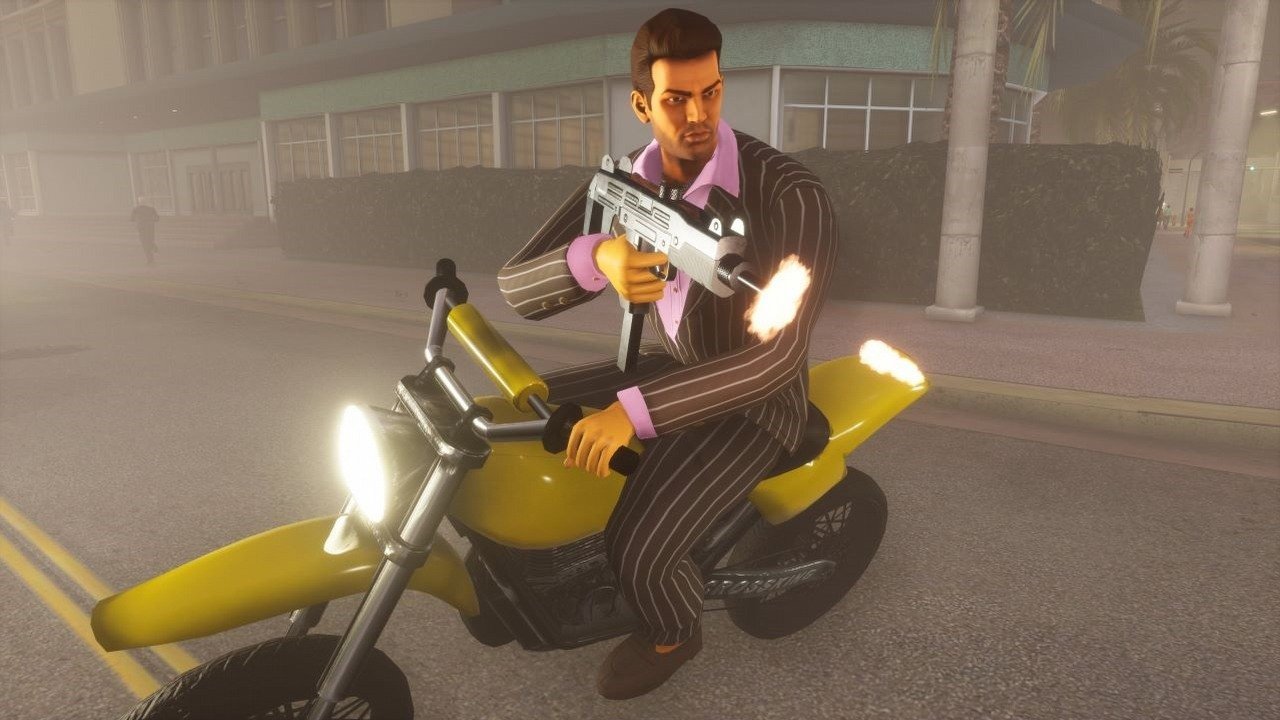
"Six hours later, and I was totally obsessed with Tommy Vercetti, Lance Vance, and zipping around the sun-kissed, neon-soaked, drug-addled pseudo-Miami streets of Vice aboard a pastel pink scooter listening to Billie Jean."
That's not to deny the significance of this abiding set-piece in Vice City. It may seem ridiculous now, but the inclusion of scooters in Grand Theft Auto was a big deal back in 2002. The first top-down GTA had featured both bikes and superbikes five years prior, with its DLC offshoot, GTA London 1969, also including mod scooters. But bikes in any capacity had not yet appeared in the Grand Theft Auto 3D universe at this point, and while 2001's GTA 3 had a pretty banging music library, Vice City upped its audio repertoire with a slew of top tracks that captured the era. The combination of firing up the ignition on that Faggio in the lane adjacent to Ken Rosenberg's office and hearing that iconic bassline and synth pop intro as you pulled into the main drag, then, was pretty special.
So much so, that it's a real shame the gravity of the moment was lost entirely in the GTA Trilogy, in part because we've become accustomed to two-wheeling in Grand Theft Auto since, and also because, honestly, Mr. Mister just can't stand up to the Thriller album at its best.
Vice City is remembered for much more than messing about on mopeds, of course, but without getting misty-eyed early doors, I found myself fully-focused on how much modern GTA has drawn from its palm tree-lined predecessor – not so much from its hand-holding missions and linear narrative fronts, but more from when it latterly opens its world up to the player, and sets them loose to explore and plunder and conquer. Nostalgia drives much of what we recall about Vice City in 2021, but, actually, it should be remembered for the foundations it laid for GTA Online.
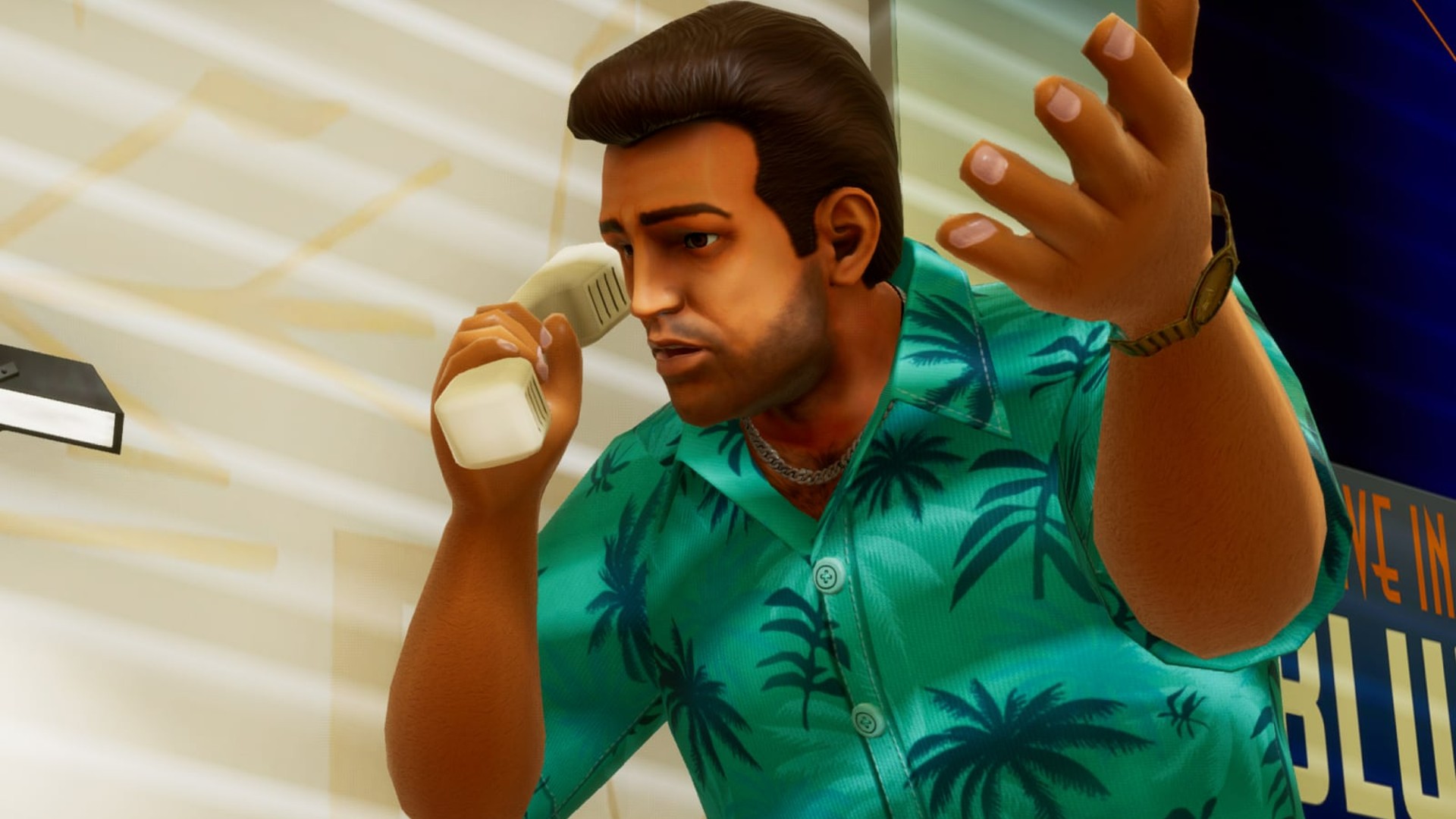
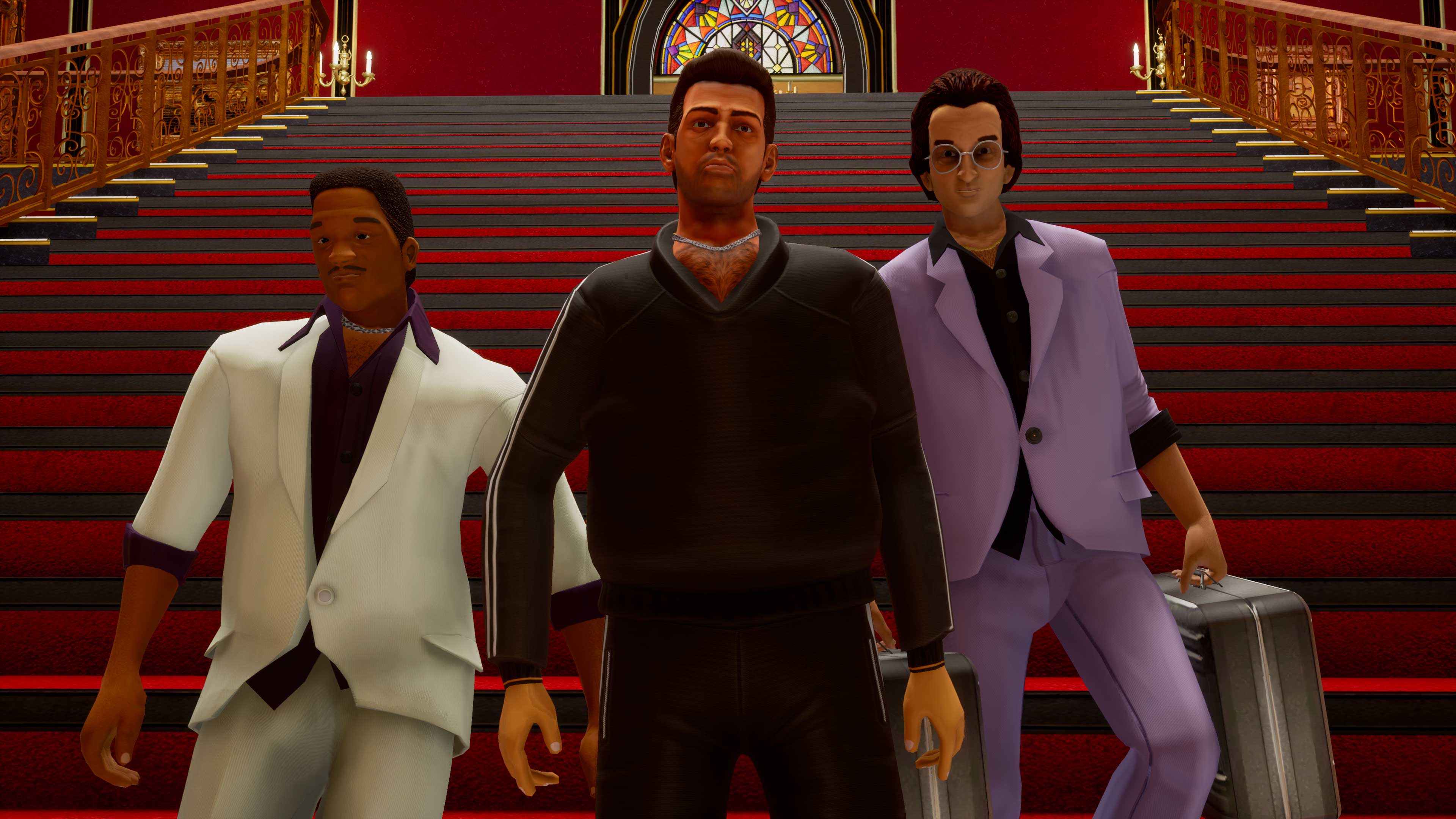
What does the Grand Theft Auto community think of the GTA Trilogy's turbulent launch?
A full decade before the arrival of GTA Online – and six years and a console generation prior to 2008's GTA 4 – Vice City of course posed a very different Grand Theft Auto experience to the one we're familiar with today. It had no online component whatsoever, and was thus story-driven from start to finish; tasking players with completing contained missions assigned by specific contacts dotted around the map, until ultimately funnelled towards a narrative conclusion. For context, in late 2002 Battlefield 1942 had only just stormed the online warzone for the first time, and online games were pretty much exclusively tied to PC – with '90s gems such as Starcraft, Ultima Online, and even Doom and Quake championing online play in varying degrees years earlier.
An online, GTA-inspired venture was as such some ways away, and yet Vice City's latter stretch of empire-building nonchalantly folds in asset and property buying, passive earning, and a fair whack of grind – all central tenets of modern day GTA Online. Again, it may seem odd to wax lyrical about these features in 2021, but this was alien to the Grand Theft Auto series at the time, whereby, despite having their stories unfold within their respective sandboxes, Vice City's forerunners were pretty much entirely linear, at least from a structural standpoint.
Weekly digests, tales from the communities you love, and more
Let's go to the beach
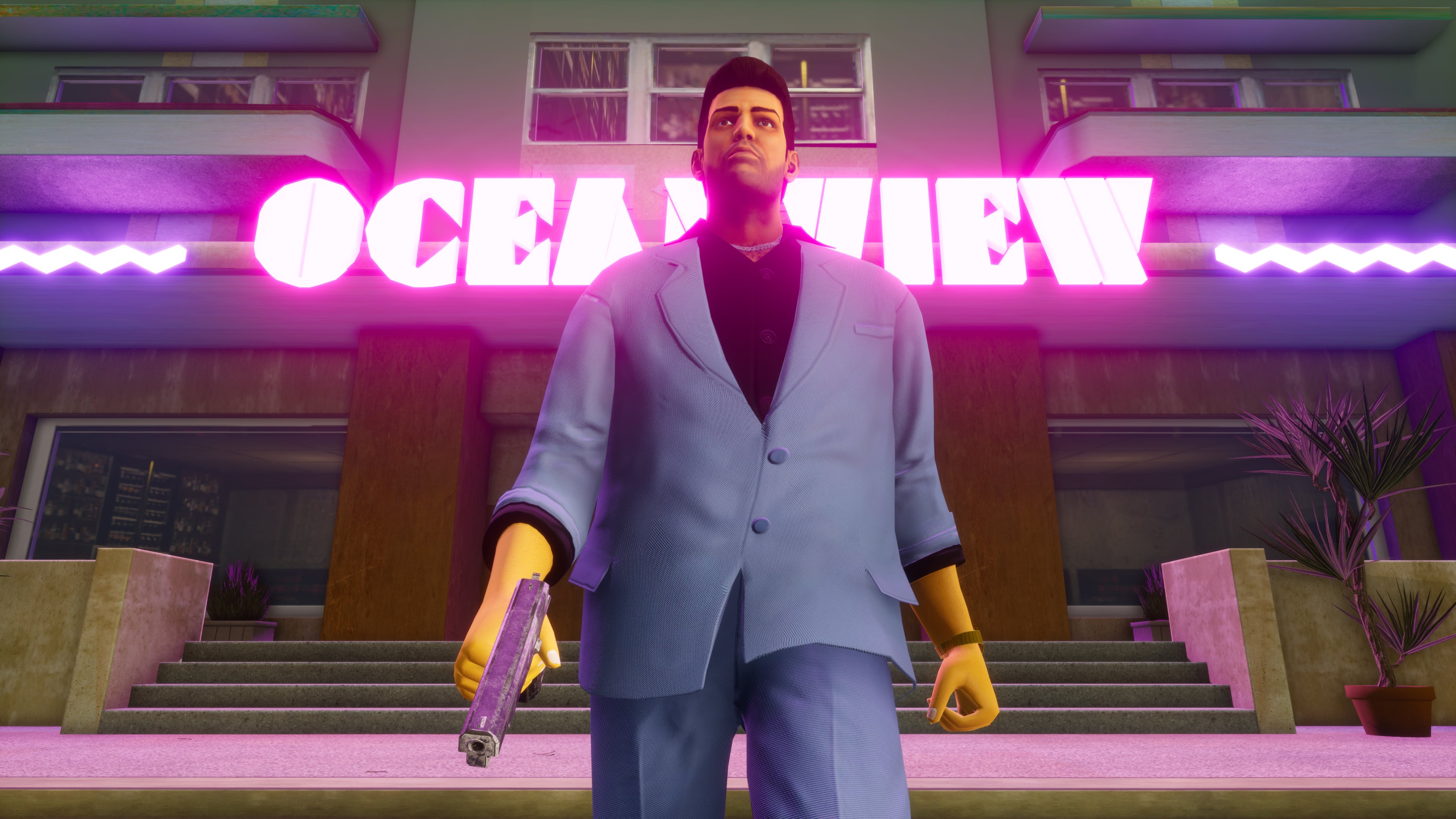
"I mean, I traded four games for Vice City at launch – Gran Turismo 3, Silent Hill 2, Metal Gear Solid 2, and FIFA 2002, no less – and still owed the shopkeeper money at the other end."
Returning to Vice via the GTA Trilogy and reaching that point where the game opens up proper – after disposing of Ricardo Diaz and taking over his estate, helping Colonel Juan Garcia Cortez escape town, and running errands for Avery Carrington thereafter heeding his advice to expand your newly-acquired drug empire – is a neat reminder of how far GTA has since come, while underlining the fact the game is at its best when letting the player choose their next move.
Do you take over the rundown InterGlobal Film Studios and charge the lease holders protection money, or do you snap up the Pole Position gentlemen's club as a means of laundering money? Maybe buying the old Printworks and letting it generate a steady flow of cash day-to-day is your best bet, or perhaps you purchase the Malibu and schmooze with the A-listers in Vice's nightlife hub. During my first playthrough way back when, I remember viewing these side-ventures as a distraction from the game's main storyline – but this time around I've revelled in the power, variety, and autonomy it has afforded me while leaving my mark on the Magic City at my own pace.
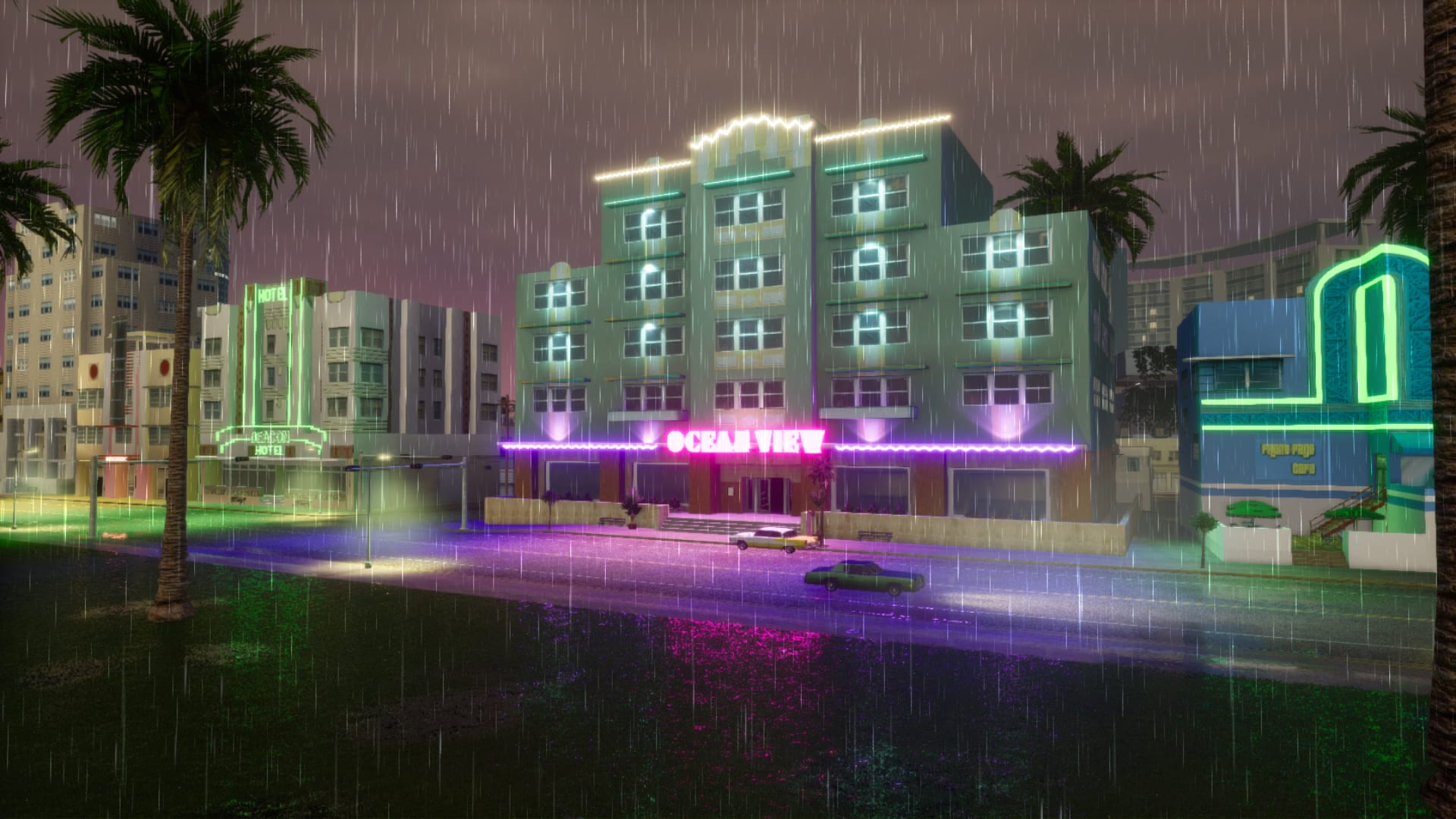
While discussing why the San Andreas fog is irrelevant, I touched on the ways in which the GTA Trilogy's slant on SA sets up GTA 6. There are loads of features from the original San Andreas I'd love to see reinstated in the next one, whenever it may be due. And with rumours suggesting number six is destined for fake-Miami once more, I'm certain the autonomy GTA Online has offered players over the last decade will carry over and, no doubt, be expanded upon. Which is great news for me. I mean, I traded four games for Vice City at launch – Gran Turismo 3, Silent Hill 2, Metal Gear Solid 2, and FIFA 2002, no less – and still owed the shopkeeper money at the other end. Despite the deserved praise San Andreas received two years later, Vice was always my favourite of this era – in GTA terms and in video games generally.
It can't be denied that the GTA Trilogy has endured a turbulent launch, and while I've been fortunate to dodge any bugs or glitches whatsoever, there's enough malfunctioning footage out there now to suggest much of the criticism levied at Grove Street Games and Rockstar has been justified. Still, technical issues aside, one thing I've thoroughly enjoyed about the GTA Trilogy as a whole, is the ways in which it's made me rethink what I know, or thought I knew, about the series. I took for granted just how tight San Andreas' mission structure was at the time, and here, in Vice City, I overlooked the key pieces Rockstar was putting in place for one of my favourite online games a decade on – whether it realised this at the time or not.
Need some GTA Vice City cheats for health, armor, weapons, and much more? We got you covered.

Joe Donnelly is a sports editor from Glasgow and former features editor at GamesRadar+. A mental health advocate, Joe has written about video games and mental health for The Guardian, New Statesman, VICE, PC Gamer and many more, and believes the interactive nature of video games makes them uniquely placed to educate and inform. His book Checkpoint considers the complex intersections of video games and mental health, and was shortlisted for Scotland's National Book of the Year for non-fiction in 2021. As familiar with the streets of Los Santos as he is the west of Scotland, Joe can often be found living his best and worst lives in GTA Online and its PC role-playing scene.


